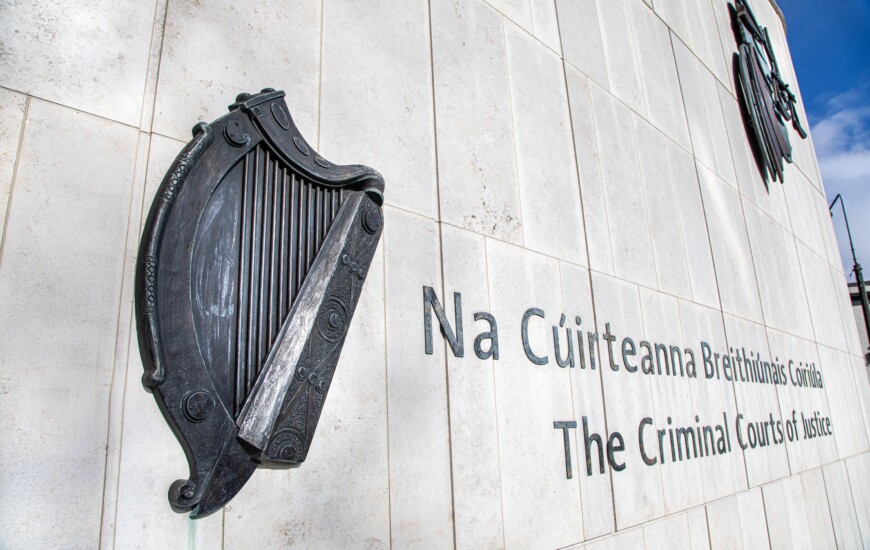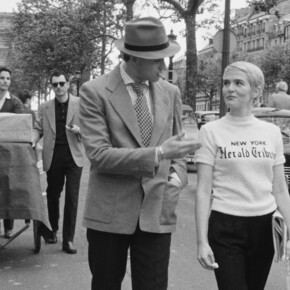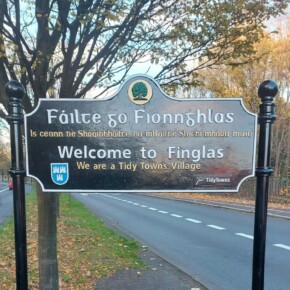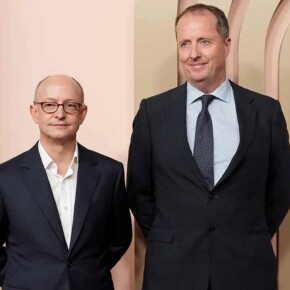Alleged theft from Bank of Ireland Private Bank trial
Dublin People 18 Oct 2024
By Eimear Dodd
A former bank managing director accused of stealing over €570,000 suggested his PA might have “swept” an invoice for his company into a bundle of bank paperwork.
Brendan Mullin (60) of Stillorgan Road, Donnybrook, Dublin 4, denies all 15 charges, which are alleged to have occurred between July 2011 and March 2013.
Mr Mullin has pleaded not guilty to one count of stealing €500,000 from Bank of Ireland (BOI) Private Bank, Mespil Road, Dublin 4 on December 16, 2011, along with eight other counts of stealing various amounts of money amounting to just over €73,000 from the bank on various dates.
He has further pleaded not guilty to one count of deception and five counts of false accounting.
Mr Mullin was the managing director of BOI Private Bank at the time of the alleged offences and he is a former rugby international who played for Ireland.
The prosecution alleges Mr Mullin authorised payments by the bank to solicitors McCann Fitzgerald, accounting firm Grant Thornton and accountants Beechwood Partners for work that was carried out either for his company, Quantum Investment Strategies, or for him personally.
Schira Donnelly, then BOI interim head of business assurance, Retail Ireland, gave evidence yesterday that she carried out an internal review in relation to an invoice paid by the bank to McCann Fitzgerald solicitors on March 15, 2013.
She said she contacted Mr Mullin, who asked for the review to be delayed as he was going on leave, which she refused.
She met Mr Mullin on April 2, 2013, during which he expressed frustration and said he was uncomfortable signing a large volume of paperwork.
Ms Donnelly told Dominic McGinn SC, prosecuting, that Mr Mullin suggested to her that this McCann Fitzgerald invoice had been “swept” into a bundle of paperwork by his PA.
She said he outlined how this payment to McCann Fitzgerald was reversed on March 25, 2013 and McCann Fitzgerald shouldn’t have sent this invoice to the bank.
Ms Donnelly said they discussed three other invoices and he told her these related to personal work carried out for him by McCann Fitzgerald, which he had paid, meaning the bank was due a refund.
She recalled him describing it as “sloppiness” on the part of the solicitors, then commenting that legal firms were “firing out bills” at that moment.
The witness told Mr McGinn she met Mr Mullin again later that day and they discussed an invoice for €24,000 from McCann Fitzgerald which appeared to have been split into two separate invoices – one for around €18,000, and a second for the remaining balance.
She said invoices above €20,000 require authorisation from the chief financial officer.
Ms Donnelly described Mr Mullin as shocked and said he put this down to “carelessness on his part”. He confirmed his signature on the invoices.
She said Mr Mullin re-iterated that the bank would be refunded and that the invoices shouldn’t have been sent to the bank as he had already paid them.
Under cross-examination, Ms Donnelly agreed with defence senior counsel Brendan Grehan that Mr Mullin told her it was possible the invoice had been “swept” into the bundle by his PA.
The witness also agreed with Mr Grehan that her report highlighted failings in the BOI Private Bank’s invoice processes.
In other evidence, the jury was shown bank records relating to the payment of these four invoices to McCann Fitzgerald, the subsequent refund from the solicitors, as well as three invoices to Grant Thornton and one to Beechwood Partners.
Mr McGinn took BOI employee Geraldine Byrne through a number of invoices from McCann Fitzgerald, including one for over €18,000 from September 2012, which had Mr Mullin’s initials written on it alongside ‘re QIF’.
Ms Byrne said she understood ‘QIF’ was an investment product, but couldn’t recall further details.
Mr McGinn noted that the invoice’s description referred to Quantum, which Ms Byrne agreed was not the same as ‘QIF’.
The jury were shown internal bank emails which stated this invoice was rejected as it was not addressed to the bank.
Ms Byrne agreed with Mr McGinn that she had emailed McCann McFitzgerald in October 2012 asking for a revised invoice, addressed to the BOI Private Bank.
The jury was then shown an invoice from McCann Fitzgerald dated October 15, 2012 which was addressed to Ms Byrne at BOI Private Bank for the same amount.
This invoice’s description referred to Quantum.
An email from McCann Fitzgerald to Mr Mullin with two invoices attached from December 2012 were also shown to Ms Byrne, who said he had forwarded them to her.
A fourth invoice from McCann Fitzgerald for advice re Quantum was shown to Ms Byrne.
This had a handwritten note ‘QIF’ on it, along with signatures including Mr Mullin’s and a date of March 15.
She told Mr McGinn that she hadn’t engaged the services of McCann Fitzgerald and the invoices should not have been addressed to her.
Ms Byrne agreed with Mr McGinn that she followed the processes as set out by the business, didn’t feel she was being asked to do anything untoward and would have reported it if asked to anything suspicious.
BOI employee Larry O’Gara confirmed to Mr McGinn that he reviewed Mr Mullin’s employment contract and found nothing to suggest the bank was liable for any expenses outside Mr Mullin’s role.
Deirdre Flannery, former head of internal audit at BOI, gave evidence earlier this week that four invoices were paid to McCann Fitzgerald solicitors and as a result of her enquiries, this money – amounting to €61,535 – was refunded.
She told Mr Grehan during cross-examination that she wasn’t aware that Mr Mullin paid all four invoices in April 2013 prior to the refund being paid to the bank.
Mr Grehan asked Ms Flannery if the bank sought to recoup the money paid to Grant Thornton and Beechwood Partners, totalling around €11,746. She said she wasn’t aware of any efforts to recover this.
Defence counsel outlined his client’s position that these particular invoices were expenses incurred as part of his interactions with the bank as a client.
He said Mr Mullin “accepts there was no agreement” the bank would pay legal fees for himself or his private company, but his position is that he believed the bank would pay the Grant Thornton and Beechwood invoices “because of business he was conducting with the bank at the time”.
Mr Grehan outlined his client’s position that he unsuccessfully applied for a loan from the bank and believed it would pay these “relatively small” invoices as a gesture of goodwill.
Ms Flannery said in her experience, a bank would look to see financial documents, but she had “never come across” a bank paying the costs to compile this information.
The trial continues before Judge Martin Nolan.











